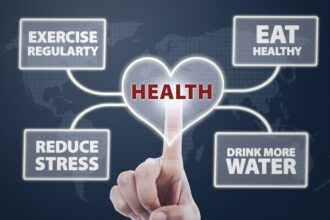A mechanic I knew in Venezuela boasted he could take apart a car – or fix anything – with a screwdriver and a pair of pliers. The body, though, is much more complex than any car. Illnesses can have multiple causes. Something as common as hypertension, for example, has over three hundred causes; blood pressure increases with pain, anxiety, stress, a lack of nutrients, hormone imbalances, and inflammations, among other causes.
A mechanic I knew in Venezuela boasted he could take apart a car – or fix anything – with a screwdriver and a pair of pliers. The body, though, is much more complex than any car. Illnesses can have multiple causes. Something as common as hypertension, for example, has over three hundred causes; blood pressure increases with pain, anxiety, stress, a lack of nutrients, hormone imbalances, and inflammations, among other causes.
The need, then, is to have more than one set of tools in the medical chest to treat an illness. That can mean pills and needles, X-rays and herbs, charts and chakras. The fully stocked tool chest that truly allows people to be healthier includes both modern medicine and alternative treatment methods.
The Miracles of Modern Medicine
People generally seek medical doctors because they have powerful tools at their disposal to treat health problems. Before antibiotics, people commonly lived with – and died from – infectious diseases; pneumonia was the number-one cause of death only 100 years ago. Mom meant it when she said, “Come inside, or you’ll catch your death of pneumonia!”
The modern medicine tool chest also boasts surgery and anesthesia, as well as the ability to attend to acute situations; ERs care for patients with immediate injuries and sicknesses that may cause death or permanent disability if not treated quickly enough. We can help the blind to see, the lame to walk, the deaf to hear, and we can heal many illnesses—miracles wrought by the hands of caring and skilled doctors, with the help of technology and advancements in medicine.
However, modern medicine is not a cure-all in every instance.
When to Seek Alternatives
Despite modern medicine’s ability to heal many maladies, there are also illnesses it doesn’t treat well. Type 2 diabetes, or “metabolic syndrome,” is increasing, and some modern medical tools can worsen the disease or cause other complications. The drugs for Parkinson’s disease, heart disease, and other common ailments can also allow, or cause progression of, problems.
In these cases, it can be helpful to turn to alternative medicine. A rule of thumb to determine if an alternative form of medicine should be sought is to ask, “Is the current treatment actually working?” We must evaluate our treatments and try new options when something is no longer working; it’s very rare that a person needs a lifetime of treatment.
We also have access to many other tools that can alleviate disease. We are just beginning to understand the effects of diet on health and wellness. Other alternative healing modalities, such as herbs, which have been used successfully for thousands of years by skilled practitioners, can remove the causes of illness.
Short-Term Relief, Long-Term Cures
The various modern and traditional healing modalities look at different facets of the same illness in distinct ways. Modern medicine often looks at the symptoms of illness and provides a drug to alleviate them. Patients with hypertension may be given a prescription to lower blood pressure, pain is treated with pain-relieving medications, and patients with swelling take diuretics to remove excess water.
Other healing traditions, on the other hand, may look at why the symptoms exist in the first place. Why is blood pressure increasing? Why is there pain? Why is there swelling? Tools are then used to address the cause, rather than the symptoms alone.
It is for this reason that a medical tool chest containing both modern medicine and alternative healing methods is most effective. There is no need to view them as entirely separate spheres of healing. Most medications succeed in relieving the symptoms of a disease while herbs, supplements, and lifestyle changes work to remove the cause of the disease until medication is no longer necessary.
In the case of diabetes, insulin injections may be needed for a period while the patient institutes lifestyle changes. When the patient has lost weight and is exercising regularly, the insulin is no longer needed to feel better. Another example can be found in patients with depression. They may need antidepressants initially, but they can also work with doctors to find and attack the depression’s root cause.
Make “Yourself” Your Expertise
With so much information available today regarding treatments and medicines, it can be difficult to know which is best. The “experts” are experts only in their respective modalities of health.
If a patient goes to an acupuncturist, he or she can expect to be poked with needles. If the patient visits an herbalist, he or she will walk out with an armful of herbs. After visiting a medical doctor, the patient may have a prescription, and if he or she consults a surgeon, the patient may end up in the operating room.
What’s best for each individual can truly only be determined by the patient. It’s best to seek as much information as possible and weigh the risks and benefits of each treatment before making a decision. As one type of treatment is tried, the patient should evaluate whether there’s improvement. From that point, it can be determined whether something new should be put to use.
For example, I had a 36-year-old patient who had to have a pacemaker put in because he was passing out. His heart has a congenital defect that causes it to stop periodically for up to 30 seconds; the pacemaker regularly saves his life. At the same time, he’s had fibromyalgia symptoms that are treated well with herbal medicines. He is now able to sleep well at night, and is no longer in pain all the time – thanks to both forms of treatment.
The Venezuelan mechanic may have been able to fix an entire car with a screwdriver and a pair of pliers, but when it comes to the human body and its many ailments, it may be necessary to use the screwdriver and the pliers – and then the drill, and perhaps the screwdriver once more, until the machine is running like new again.









